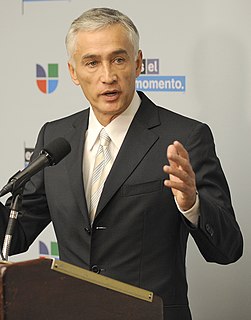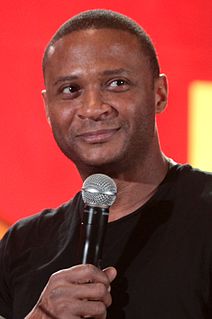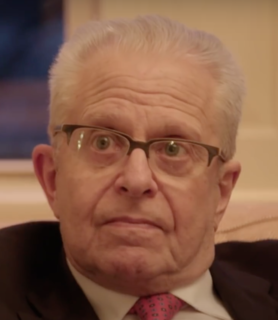A Quote by Pramila Jayapal
Those who have the most power - whether famous TV anchors, rich Hollywood moguls, judges, Members of Congress, or the president of the United States - must decide how to exert that power: for corruption or for good.
Related Quotes
It would reduce the whole instrument to a single phrase, that of instituting a Congress with power to do whatever would be for the good of the United States; and as they would be the sole judges of the good or evil, it would be also a power to do whatever evil they please . . . . Certainly no such universal power was meant to be given them. It [the Constitution] was intended to lace them up straightly within the enumerated powers and those without which, as means, these powers could not be carried into effect.
I was very, very concerned about President Obama and how much executive order and how much executive power he tried to exert. But I think I want to be, and I think congress will be, a check on any executive, Republican or Democrat, that tries to grasp too much power. And really, a lot of the fault is not only presidents trying to take too much power, it's Congress giving up too much power.
The Italian journalist Oriana Fallaci used to say that for her, an interview was like a war. I get the sense that we've forgotten that here in the United States. You turn on the TV, and you see very bland interviews. Journalists in the United States are very cozy with power, very close to those in power.
Whether it comes from a despotic sovereign or an elected president, from a murderous general or a beloved leader, I see power as an inhuman and hateful phenomen. To the same degree that I do not understand power, I do understand those who oppose power, who criticize power, who contest power, especially those who rebel against power imposed by brutality.
When you authorised Congress to borrow money, and to contract debts, for carrying on the late war, you could not intend to abridge them of the means of paying their engagements, made on your account. You may observe that their future power is confined to provide common defence and general welfare of the United States. If they apply money to any other purposes, they exceed their powers. The people of the United States who pay, are to be judges how far their money is properly applied.
Under Article II, all executive power is vested in one president of the United States. The regulatory state is Congress's efforts to undermine the president's authority. And my hope is we will see a president use that constitutional authority to rein in the uncontrollable, unelected bureaucrats and to rescind regulations.
President Barack Obama couldn't bring everything into existence through Congress. Because from the day that he was elected president of the United States, the United States Congress, many of the Republicans met, and they declared that they would never allow his legislative program to succeed. And for eight years they fought him.
I take the Constitution very seriously. The biggest problems that we're facing right now have to do with [the president] trying to bring more and more power into the executive branch and not go through Congress at all. And that's what I intend to reverse when I'm President of the United States of America.
Is the United States going to decide, are the people of this country going to decide that their Federal Government shall in the future have no right under any implied power or any court-approved power to enter into a solution of a national economic problem, but that that national economic problem must be decided only by the States?... We thought we were solving it, and now it has been thrown right straight in our faces. We have been relegated to the horse-and-buggy definition of interstate commerce.
No power but Congress can declare war; but what is the value of this constitutional provision, if the President of his own authority may make such military movements as must bring on war? ... [T]hese remarks originate purely in a desire to maintain the powers of government as they are established by the Constitution between the different departments, and hope that, whether we have conquests or no conquests, war or no war, peace or no peace, we shall yet preserve, in its integrity and strength, the Constitution of the United States.































